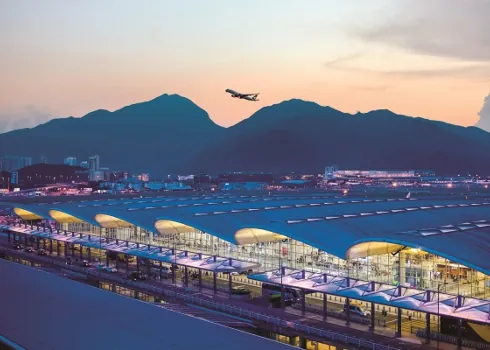
Hong Kong Soars in Cargo Traffic Amid North American Slowdown
2025-08-21
Author: Jessica Wong
Steady Growth at Hong Kong International Airport
In July, Hong Kong International Airport (HKIA) reported a robust increase in cargo traffic, solidifying its status as one of the busiest air freight hubs globally. The airport managed to handle an impressive 430,000 tonnes of cargo, reflecting a 3.9% rise compared to the same period last year. This surge was primarily fueled by heightened demand in routes connecting Europe and the Middle East.
Strong Performance Despite North American Decline
While cargo volumes from North America saw a dip, HKIA's overall throughput for the first seven months of 2025 still climbed by 2.2%, totaling 2.83 million tonnes. On an annual basis, cargo volumes increased by 5.4%, reaching approximately 5 million tonnes. This upward trend highlights HKIA’s resilience against regional market fluctuations.
Expansion Boosting HKIA's Global Logistics Role
Airport officials noted that this growth is bolstered by the continuous expansion of HKIA's cargo network. Airlines are not only resuming previously suspended routes but also introducing new destinations. Recent additions include key European cities such as Munich, Rome, and Brussels, as well as connections in Southeast Asia and mainland China.
How HKIA Stacks Up Against Competitors
Though HKIA leads the pack, regional rivals are also making their mark. Incheon International Airport in Seoul, while not comparable in volume, has been steadily growing, maintaining its status as one of the world's top five cargo airports owing to strong infrastructure investments.
Meanwhile, Singapore Changi Airport, a crucial gateway for Southeast Asia, reported handling approximately 1.99 million tonnes of cargo in 2024 — still a significant amount, but dwarfed by Hong Kong’s figures.
Conclusion: HKIA’s Dominance Remains Unchallenged
Despite challenges in specific markets and shifts in capacity, HKIA’s impressive cargo growth underscores its pivotal role as a global logistics hub, particularly for transpacific and intra-Asia routes. While Incheon and Changi are influential players, they trail significantly behind HKIA in cargo volume, showcasing the latter’s enduring dominance in the air freight industry.





 Brasil (PT)
Brasil (PT)
 Canada (EN)
Canada (EN)
 Chile (ES)
Chile (ES)
 Česko (CS)
Česko (CS)
 대한민국 (KO)
대한민국 (KO)
 España (ES)
España (ES)
 France (FR)
France (FR)
 Hong Kong (EN)
Hong Kong (EN)
 Italia (IT)
Italia (IT)
 日本 (JA)
日本 (JA)
 Magyarország (HU)
Magyarország (HU)
 Norge (NO)
Norge (NO)
 Polska (PL)
Polska (PL)
 Schweiz (DE)
Schweiz (DE)
 Singapore (EN)
Singapore (EN)
 Sverige (SV)
Sverige (SV)
 Suomi (FI)
Suomi (FI)
 Türkiye (TR)
Türkiye (TR)
 الإمارات العربية المتحدة (AR)
الإمارات العربية المتحدة (AR)